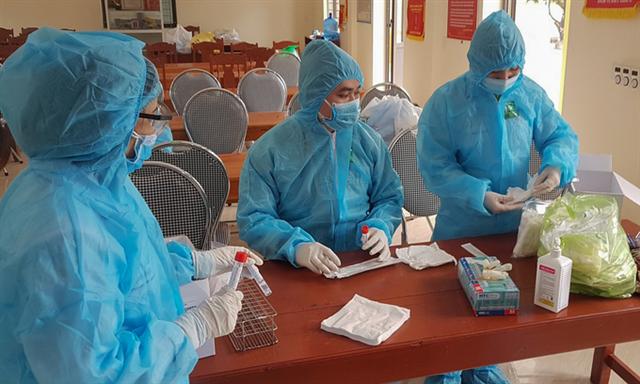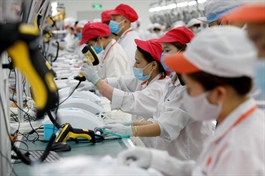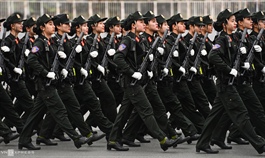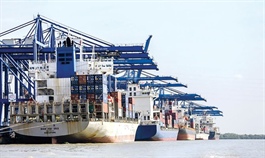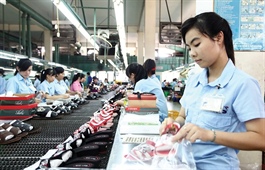Vietnamese more concerned about healthcare, economic growth amid pandemic: report
Vietnamese more concerned about healthcare, economic growth amid pandemic: report
Vietnamese have grown increasingly concerned about health and economic development amid the Covid-19 pandemic, a 2020 report on governance and public administration revealed.
Medical workers perform Covid-19 testing and contact tracing in Quang Ninh Province, February 1, 2021. Photo by VnExpress.
|
The 2020 Vietnam Provincial Governance and Public Administration Performance Index (PAPI), issued Wednesday, is a nationwide policy monitoring report that surveys citizens' opinions on the performance and quality of policy implementation and service delivery by Vietnam's provincial governments. Last year, 14,732 respondents from all 63 cities and provinces were surveyed for the report.
While poverty remains the most important issue for around 18 percent of respondents, the percentage was much lower than in 2019 at around 25 percent, and is in fact the lowest since 2015. Instead, health, health insurance and economic growth has taken center stage, as concerns about economic growth rose from 10 to 13 percent, and those regarding health and health insurance dramatically rose from 2 to 17 percent from 2019.
The shift in concern reflects the overall anxiety among Vietnamese over the economic situation at home, especially amid the coronavirus pandemic. People’s satisfaction regarding their household economic situation has dropped to its lowest for the last five years, while their evaluation of Vietnam’s economy has also become the most pessimistic of the past three years, according to the report.
For the first time in a decade, more respondents said their household economic situation was either poor or very poor compared to those who reported it to be either good or very good. People’s confidence in the economy also remarkably shifted, with a record high proportion saying the national economic situation was bad, the report added.
Of greatest concern is the clear gender differences in 2020, with women more concerned with poverty, healthcare and education, while men are more worried about economic growth, national security, corruption and issues related to the East Sea, known internationally as the South China Sea, the report stated.


